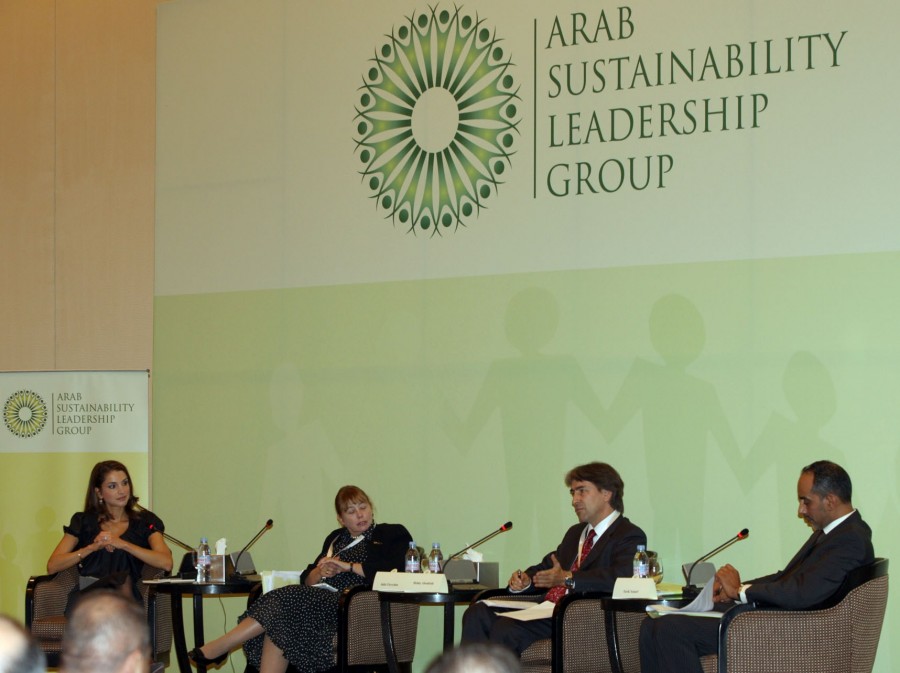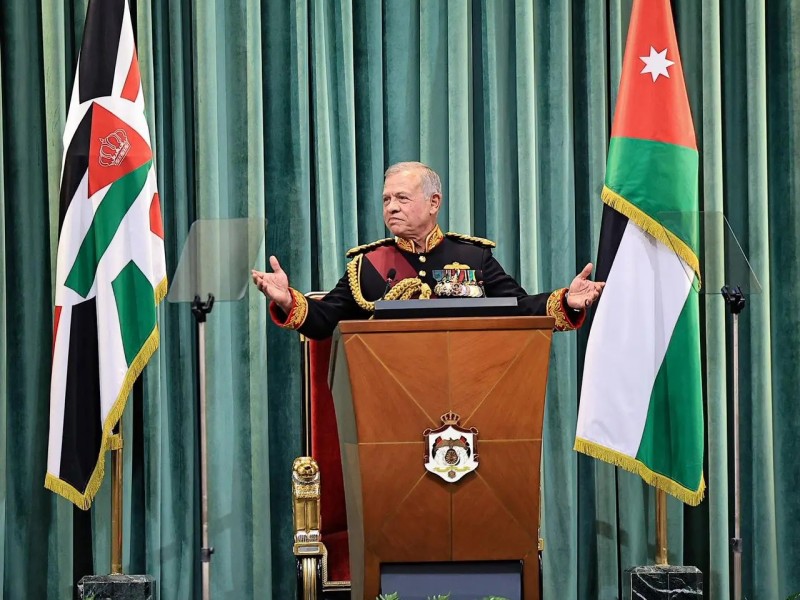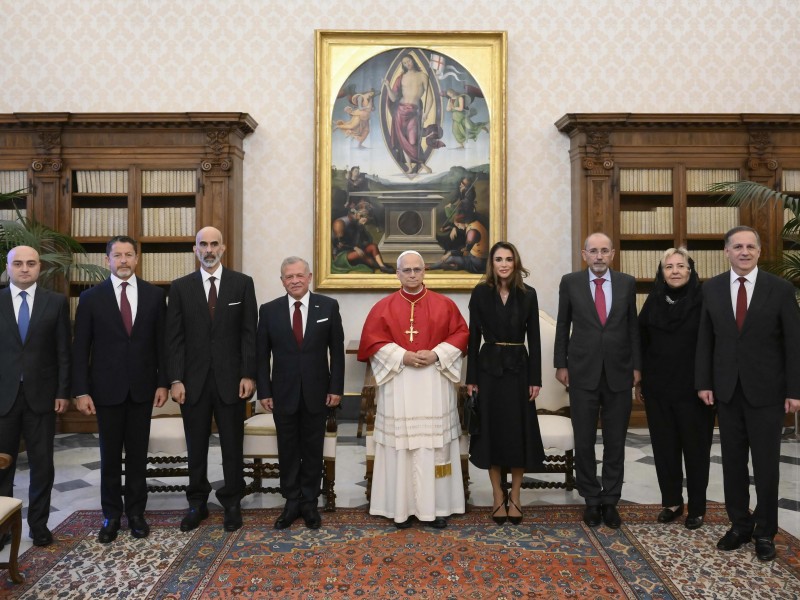Queen Rania Focuses on Youth Employment in Arab World

(Office of Her Majesty – Press Department – Amman) - During the first day of a two-day conference focusing on sustainable business practices in the Arab world, Her Majesty Queen Rania Al Abdullah led a discussion focusing on youth employment and employability in the Arab world, Sunday, advising leaders from the business community to develop sustainable solutions to “bridge the gap between school and work.”
At the opening plenary of the second Arab Sustainability Leadership Group (ASLG) meeting, Queen Rania pointed out why youth employability is of major concern to the region.
“With 60 percent of our population under the age of 30 and one out of every four unemployed, we have to create five million jobs per year just to prevent a rise in unemployment,” she warned. Her Majesty also noted that although literacy rates are high in the Arab world, “the gains in education are not being translated into gains in employment,” and reminded the attendees that each of their companies has a direct interest in investing in education.
With the highest youth unemployment in the world, the Middle East needs cross-sector involvement in solving this issue. When the ASLG met in Amsterdam for the first time in May, Queen Rania pledged to spotlight the issue of social equity to help unleash the potential of the future, noting that “youth are the main drivers of the economic force of the future.”
Speakers on the panel included Dame Julia Cleverdon, Vice President of the UK-based organization Business in the Community; Helmy Abouleish, Managing Director of Sekem in Egypt; and Tarik Yousef, Dean of the Dubai School of Government.
Promoting social entrepreneurship and social innovation into educational curricula, the panel stressed that businesses have the capacity to lead the way and should do so. Drawing on their experiences in developing sustainable solutions to such issues, each of the panelists shared their insight on how to support education and bring in the right kind of buy-in from government, civil society and other partners in the private sector.
The international panel cited their own national frameworks of governments, business and civil society working together. Dame Cleverdon spoke about her experiences with a number of relevant initiatives in the UK that targeted homeless and unemployed youth and worked to reintegrate them into society by providing job opportunities and mentorship. Based on their tracking, the majority of the youth involved in the program successfully remained in the workforce for at least six months.
Her Majesty noted that, in such cases, business can come in and fill the gaps in the education system. Building on such sentiment, Yousef added that businesses have a moral obligation to provide a genuine alternative to government intervention to achieving social goals. “The private sector can demonstrate what works and what doesn’t,” he said.
Following the panel, attendees from the private and public sectors, as well as the youth community, engaged in a lively brainstorm on how best to focus the private sector’s energy on youth employment issues and develop a relationship with government entities to help create the necessary framework for implementing some of the recommendations.
The group will be meeting in Amman over the next two days to identify ways to overcome the challenges of sustainability in the region, and to work out the most efficient ways of spreading the concept to other progressive organizations. The ASLG has worked to encourage businesses to balance profit with environmental protection and equal opportunity.
Formed by Queen Rania earlier this year, the group is open to all organizations based in the Arab region that are committed to the principles of sustainability. Members agree to work towards the goals of ASLG, including adopting a strategy to implement sustainability management within their organizations, and having a plan in place to produce sustainability reports within a reasonable timeframe.
Starting out with 16 members, the group has grown to include 22 representatives of 12 of the region’s most progressive private businesses, non-governmental institutions, and has representation from the public sector as well. With quarterly meetings, the network has committed to discussing ways to change mindsets about sustainability and reporting, to increase public awareness of the benefits of reporting to companies and the public, and to discuss innovative ways of how to promote these issues.
Featured
Queen Rania's official website
This website does not support old browsers. To view this website, Please upgrade your browser to IE 9 or greater
Your browser is out of date. It has known security flaws and may not display all features of this and other websites. Learn how to update your browser



